View current page
...more recent posts

I enjoyed blogger Michael J. Totten's photo tour of Libya (hat tip to Dennis). Totten captures the bleak Soviet-style architecture in Tripoli, vanishing Berber dwellings in the Saharan outback, and some beautifully-preserved Roman buildings, all framed against the empty desert landscape--in fact, there are hardly any people in the photos so the country looks weirdly depopulated. Of course, Ghaddafy has his heroic picture everywhere, which Totten mercilessly ridicules. But wait, isn't Moammar a good guy now that Bush's aggressive warmaking convinced him to "turn in his nukes"? Thankfully we don't have a Libya-esque, state-sponsored cult of personality in this country.

Whoops, well, I'm sure this billboard in Florida paid for by the Bush-backing Clear Channel radio chain is a fluke.
Loop Collection Updated.
Techno Loop [mp3 removed]
Proto-Trance Loop [mp3 removed]
Psychedelic Rock Loop [mp3 removed]
![]() P0rn Loop [mp3 removed]
P0rn Loop [mp3 removed]
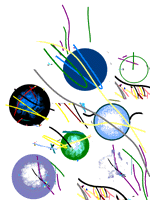
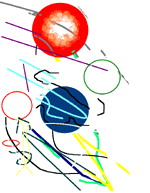
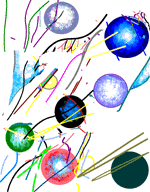
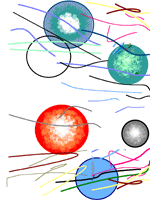
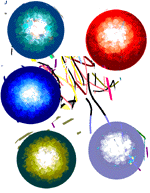
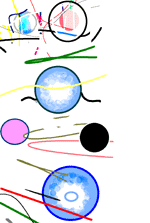
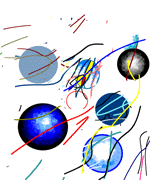
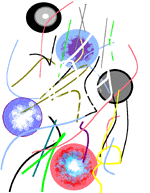
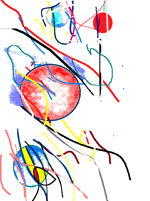









Filled with random violence, slapstick, silly names, toilet humor, and various other signifiers of lowest-common-denominator satire, Greaser's Palace doesn't so much reward its audience's patience as punish it. Glacially paced and filled with enough dead time and shots of people walking and crawling to fill a half-dozen Bresson films, [it's] well-acted and handsomely filmed but unrelentingly dull. Perhaps worst of all, for a film that aims to shock and offend, its juxtaposition of show business and divinity now seems downright quaint. As a product of an unusually adventurous time in cinema history, Greaser's Palace has perverse appeal. As a comedy, it's virtually unwatchable. —Nathan Rabin

Max Schumacher: You need me. You need me badly. Because I'm your last contact with human reality. I love you. And that painful, decaying love is the only thing between you and the shrieking nothingness you live the rest of the day.
Diana Christensen: [hesitatingly] Then, don't leave me.
Max Schumacher: It's too late, Diana. There's nothing left in you that I can live with. You're one of Howard's humanoids. If I stay with you, I'll be destroyed. Like Howard Beale was destroyed. Like Laureen Hobbs was destroyed. Like everything you and the institution of television touch is destroyed. You're television incarnate, Diana: Indifferent to suffering; insensitive to joy. All of life is reduced to the common rubble of banality. War, murder, death are all the same to you as bottles of beer. And the daily business of life is a corrupt comedy. You even shatter the sensations of time and space into split seconds and instant replays. You're madness, Diana. Virulent madness. And everything you touch dies with you. But not me. Not as long as I can feel pleasure, and pain... and love.
[Kisses her]
Max Schumacher: And it's a happy ending: Wayward husband comes to his senses, returns to his wife, with whom he has established a long and sustaining love. Heartless young woman left alone in her arctic desolation. Music up with a swell; final commercial. And here are a few scenes from next week's show.
[Picks up his suitcases and leaves]
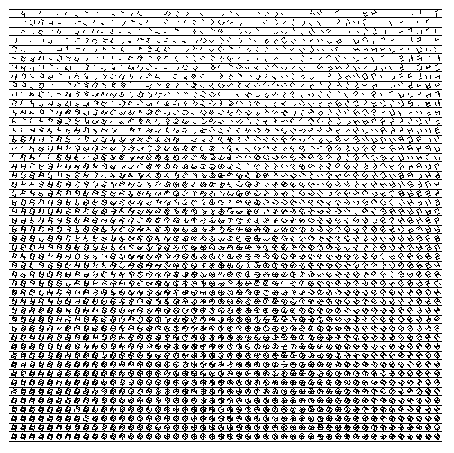
Above, a work by Manfred Mohr.
Mohr was born in 1938 in Pforzheim (Germany). He studied lithography at the Ecole des Beaux Arts, in Paris. He turned from traditional painting to the computer in 1969 to realize his artistic interest in Constructivist artforms. He focused his artistic vocabulary and aesthetic expression by working only in black and white, not reverting to a color palette until 1998, using a plotter as output from the computer.Mohr's work is on view in a show at bitforms called "Scratch Code," consisting of "computational works work from the 50s through the 70s: plotter drawings, prints, sculptures, film." The above piece (a similar one is in the show)
Mohr: The computer became a physical and intellectual extension in the process of creating my art. I write computer algorithms i.e. rules that calculate and then generate the work which could not be realized in any other way. It is not necessarily the system or the logic I want to present in my work, but the visual invention which results from it. My artistic goal is reached, when a finished work can visually dissociate itself from its logical content and convincingly stand as an independent abstract entity.
The experience of the work goes exactly counter to "the look of thought," particularly if thought is understood as classical expressions of logic. For such expressions, whether diagramatic or symbolic, are precisely about the capacity to abbreviate, to adumbrate, to condense, to be able to imply an expansion with only the first two or three terms, to cover vast arithmetic spaces with a few ellipsis points, to use, in short, the notion of et cetera.Update: wording changed based on peevish correction from Mohr: see comments.
[....]
In Variations of Incomplete Open Cubes....what we find is the "system" of compulsion, of the obsessive's unwavering ritual, with its precision, its neatness, its finicky exactitude, covering over an abyss of irrationality.
